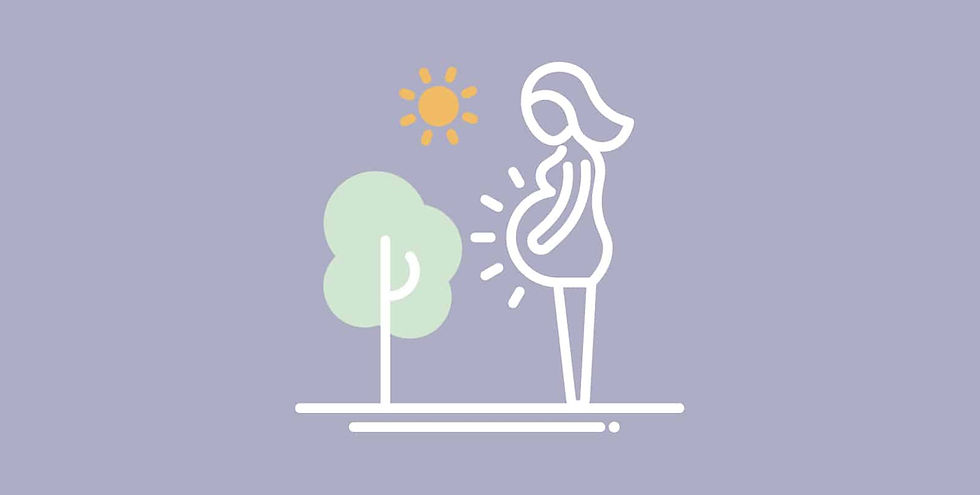By: Rachel Harris
Due to the ever-changing nature of modern society, laws often need to be reformed and legal systems must be able to recognise the need for these changes and implement them when necessary. Recently, Australia’s stance on surrogacy has shifted to respond to advancements in birth technology and changes in social values. The legalisation of altruistic surrogacy in Australia has led to changes in parentage laws specific to surrogacy, and has created complications regarding the differences between the biological rights and obligations and the social rights and obligations that arise for all parties involved in surrogacy.

Due to recent advances made in reproductive technologies, the legal parentage of children born through surrogacy agreements is complicated. The surrogate who carried the baby is legally considered the child’s parent at birth and has no legal obligation to transfer parental responsibility to the genetic parents. In 2016, the House of Representatives Standing Committee on social policy and legal affairs held an inquiry into the regulatory and legislative aspects of surrogacy agreements, including issues relating to the rights and protections of parties involved in the surrogacy process, and potential improvements to laws and policies relevant to surrogacy. However, this inquiry didn’t lead to any legislative changes, and the issues surrounding legal parentage of children born through surrogacy agreements still stand. If the surrogate refuses to relinquish care of the child, legal issues can arise between the two parties. This raises questions of the law’s ability to actively respond to contemporary issues that arise due to changes in society’s values. Despite the inquiry held in 2016 by the House of Representatives Standing Committee as an agency of reform, nothing has changed to lessen the legal issues surrounding the legal parentage of children born into surrogacy arrangements. The lack of actual legal changes that could lessen or even eliminate such issues with surrogacy in Australia highlights the inefficiencies within the legal system in its ability to respond to significant changes in society.
Similarly, due to fairly recent changes in social values, the concept of ‘family’ has changed quite significantly, and a larger variety of family structures are socially accepted. Laws in Southern Australia banning same-sex couples from taking part in surrogacy arrangements have recently been considered to be outdated and discriminatory. In March 2017, the Parliament of South Australia, passed the Statutes Amendment (Surrogacy Eligibility) Act, amending aspects of the Assisted Reproductive Treatment Act 1988, the Equal Opportunity Act 1984, and the Family Relationships Act 1975. This act gives same-sex couples in South Australia equal access to assisted reproductive technology and altruistic surrogacy arrangements, and prohibits the refusal to help people seek out surrogacy agreements due to their sexual orientation.
The Australian legal system does often respond to changes regarding domestic surrogacy, and does recognise some areas in which reform is necessary, such as surrogacy access for same-sex couples. However, in other areas, such as the legal parentage of children born into surrogacy agreements governments are seemingly unable to make changes to the relevant laws that could reduce the legal risks when it comes to surrogacy arrangements. Further changes need to be made in order to set concrete rules surrounding parentage, and this has not yet occurred in Australia.
CITATIONS:
Same sex couples in South Australia have equal access to IVF and legal surrogacy. [online] Available at: <https://www.hrlc.org.au/news/2017/3/21/same-sex-couples-in-south-australia-have-equal-access-to-ivf-and-legal-surrogacy?rq=surrogacy> [Accessed 21 March 2022].
Family Relationships (Surrogacy) Amendment Bill 2014.
Family Court of Australia intervenes when Surrogacy Agreement goes wrong. [online] Available at: <https://marinolaw.com.au/family-court-australia-intervenes-surrogacy-agreement-goes-wrong/> [Accessed 21 March 2022].
Page, S., 2016. Is surrogacy legal in Australia?. [online] O&G Magazine. Available at: <https://www.ogmagazine.org.au/18/3-18/surrogacy-legal-australia/#easy-footnote-1-2275> [Accessed 21 March 2022].
Parliament of Australia, 2016. Surrogacy Matters Inquiry into the regulatory and legislative aspects of international and domestic surrogacy arrangements. [online] Available at: <https://www.aph.gov.au/Parliamentary_Business/Committees/House/Social_Policy_and_Legal_Affairs/Inquiry_into_surrogacy/Report> [Accessed 21 March 2022].
Ramsden Lawyers. 2016. A NEW REPORT PUTS AUSTRALIA’S SURROGACY LAWS UNDER THE SPOTLIGHT - Ramsden Lawyers. [online] Available at: <https://ramsdenlaw.com.au/news/a-new-report-puts-australias-surrogacy-laws-under-the-spotlight/> [Accessed 21 March 2022].

Comentários